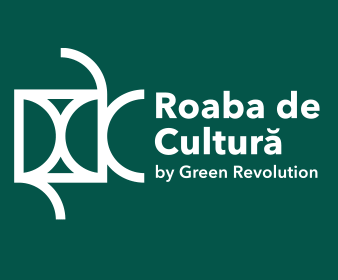21 May 2008, Jakarta – The rampant destruction of Indonesia’s forests, driven by the rapid expansion of the palm oil industry, should be urgently controlled to curb the country’s growing greenhouse gas emissions (GHG) and biodiversity loss, environmental group Greenpeace said today during the launch of their latest report, reviewing the Indonesian Palm Oil sector.
The report titled „The Hidden Carbon Liability of Indonesian Palm Oil”, examines the costs that investors and consumers of palm oil would have to bear in the future. As markets increasingly accept GHG emissions as a liability, industry rather than society will be shouldering the cost.
„If the world’s palm oil producers, suppliers and consumers do not call for an urgent halt to deforestation now, current unsustainable industry practices will result in a massive future carbon liability”, said Greenpeace Southeast Asia Political Advisor, Arief Wicaksono.
The Greenpeace report launch coincides with this year’s World Palm Oil Summit and Exhibition in Jakarta, where hundreds of key global palm oil industry players are gathering for 3 days to discuss growing trends in the business, including environmental issues. The event is jointly hosted by the Indonesian Palm Oil Research Institute and the Indonesian Palm Oil Producer’s Association.
The industry’s expansion into primary forests and peatlands is the main driver of Indonesia’s greenhouse gas emissions. Already Indonesia’s rainforests are being destroyed faster than any other major forested country in the world making it the third largest emitter of greenhouse gases on the planet. (1) However, the recent increase in forest fire hotspots in Sumatra’s Riau Province, which has already lost much of its carbon-heavy peatland forest, signal ’business as usual’ as forests are cleared and peatland burned in preparation for palm oil plantations.
"The Hidden Carbon Liability of Indonesian Palm Oil”, assesses the risk companies using palm oil are exposed to as a result of their suppliers business activities. The report estimates that, in the case of Unilever, the company would be liable for €714 million annually at predicted carbon trading prices of €30 per tonne of CO2, with GHG emissions from Indonesian palm oil producers potentially accounting for nearly half of Unilever’s total estimated supply chain emissions.
Following a recent Greenpeace consumer campaign encouraging Unilever to take the lead in halting destruction of Indonesia’s forests for palm oil, company CEO Patrick Cescau, speaking at the May Day Climate Change Summit in London, called for an immediate moratorium on deforestation and peatland clearance Mr. Cescau also committed Unilever to ensuring that all of its palm oil supplies would come from certified sustainable sources by 2015.
„Greenpeace is calling on palm oil suppliers and consumers to follow Unilever’s lead and declare an immediate moratorium on conversion of peatland and forests”, concluded Greenpeace Southeast Asia Forests Campaigner, Hapsoro.
Greenpeace is an independent, global campaigning organisation that acts to change attitudes and behaviour, to protect and conserve the environment, and to promote peace.
Notes to editors:
(1) Wetlands International, Peatland degradation fuels climate change, November 2006
(2) Greenpeace is calling on the palm oil industry to declare an immediate moratorium on conversion of peatland and forests with the following as minimum criteria.
1. No new plantations within mapped forest areas
2. No plantations resulting in the degradation of peatlands
3. No plantations or expansion post-November 2005 resulting from deforestation or degradation of High Conservation Value areas
4. No plantations or plantation expansion established on indigenous peoples’ and other forest dependent community land without their free, prior and informed consent
5. Establish full supply chain traceability and segregation systems which exclude palm oil from groups that fail to meet these criteria
Greenpeace released a damning report, „Burning Up Borneo”, on how palm oil suppliers are driving deforestation in Indonesia’s Borneo, fuelling global greenhouse gas emissions and threatening endangered species such as orangutans. http://www.greenpeace.org/seasia/en/press/reports/how-unilever-palm-oil-supplier
Since 1990, 28 million hectares of Indonesian rainforest – an area the size of Ecuador – have been destroyed, mostly to clear the way for palm oil plantations. Demand for palm oil is expected to double by 2030 and triple by 2050, when compared to 2000. (FAO)



